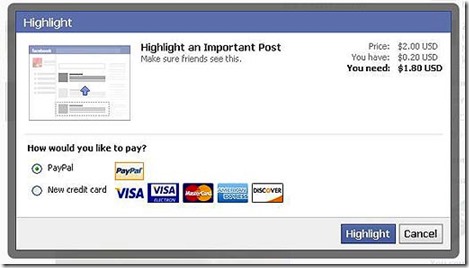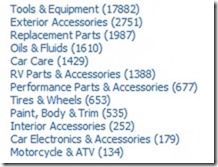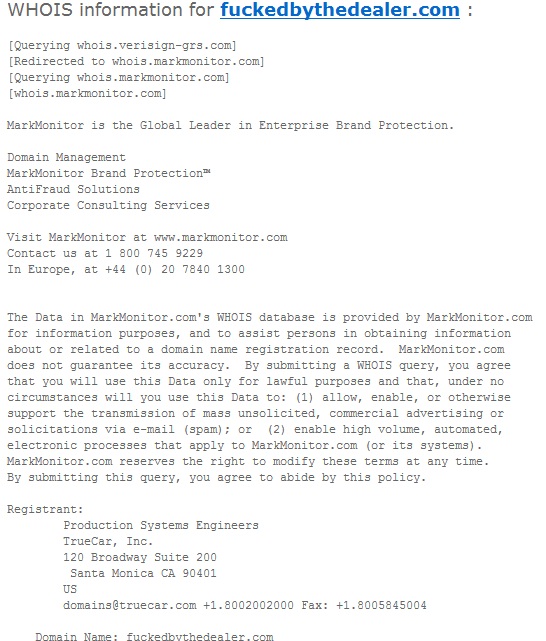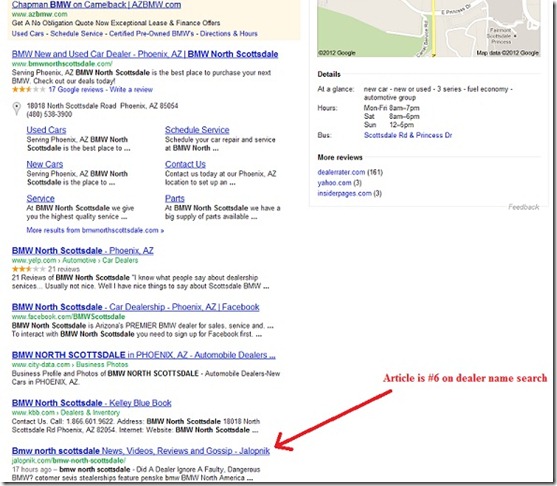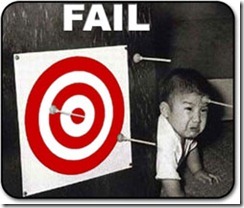Google’s online ventures are usually anything but under the radar. Yet recently, in what may be a game-changing play, the search engine giant quietly entered the third-party lead provider business for car dealerships.
The beta version of Google Comparison Ads for Autos (which is unofficially being referred to as “Google Cars” within the industry) was launched to very little fanfare a few weeks ago in the San Francisco Bay area. The service invites participating dealers to send their inventory to Google, allowing consumers direct access to inventory, price comparison, and the ability to request quotes from within Google search results. As shown below, the program—and associated inventory—is prominently displayed on page one of a relevant search.
While the program is currently limited to dealers within the San Francisco Bay area, program-specific search results are available throughout the state of California, not just for people located within the Bay area—contrary to what others are reporting. As evidenced by the above screen-grab, I did not have to change my location to get Comparison Ad results, and I live almost 500 miles away, in Southern California.
Google is currently testing a number of similar Comparison Ads programs for other products, including credit cards, CDs, and checking and savings accounts. Results have been controversial, with many advertisers in these industries reporting dissatisfaction, especially since Google is not obligated to play by its own rules and is, in effect, competing with its own advertisers. In November 2011, Google temporarily suspended its Comparison Ads service to the mortgage industry with plans to reboot the program after revamping it.
While specifics of the program for auto dealers have yet to be announced, Google is promoting the new service with the following program highlights:
“Higher-quality leads: Our leads come directly from motivated, purchase-ready consumers who have specifically chosen to contact your dealership. Leads are unique, never resold, and delivered immediately to you.
Free inventory listings: You can have your inventory shown to consumers on Google for free, even if you decide not to receive leads.
More than just inventory: Consumers can choose to connect with you even when you don’t have a specific car in inventory. We know that you can order the car, dealer trade, or find other solutions to help consumers get the cars they want.
Greater control over leads: You choose how much you’re willing to pay for a lead and target consumers based on distance and specific type of car, so you get the leads that are most valuable to you.”
This is all the information that Google currently has publicly available about the program. However, the operational processes used in the suspended Comparison Ads program for mortgages may offer additional insights. Here’s a run-down of how the program functioned:
1. Google looked at maximum bids placed by each competing bidder and then set a reserve price based on those bids. Once set, the reserve price was the minimum fee bidders would have to pay to appear on a desired search results page.
2. Anyone bidding below the reserve price was dropped from the auction. Google also dropped the bottom 10% of bidders who bid at or above the reserve price.
3. Results were then displayed (in this industry’s case) from lowest to highest APR. This leads me to believe automotive results would be displayed with the lowest prices first.
Furthermore, this is how, in an unlisted video, Google described the highlights of the program to the mortgage industry:
• The ads were included in the “Sponsored Listing” section but are not counted in the AdWords auction.
• Pricing was pulled directly from the companies’ “pricing engine product feed,” which would presumably be the equivalent of a dealer’s DMS or pricing tool, and updated multiple times per day.
• Bids could be highly targeted to reach the consumers most likely to convert, and an advertiser could place different bids for each targeted criteria.
Google mentions that they are working on a different ranking system for the mortgage program (one of the reasons provided for its suspension) in which Google will reward high-quality advertisers using factors such as:
• Accuracy of offers as determined by mystery shopping
• Turnaround time on lead follow-up
• Customer satisfaction as measured by surveys
It is probably safe to assume that Google will eventually apply these ranking criteria across all industries serviced by their Google Comparison Ad program.
Google is promoting the Comparison Ads for Autos program as a way for dealers to source fresh leads from consumers’ Google searches, but given the above information I have several concerns regarding how beneficial the program will really prove to be.
First and foremost, Google claims that the leads generated by the program are “unique,” yet in the final step of a lead submission, the program offers the consumer the choice to contact other dealers who may have similar cars available. A single person inputting a lead and requesting contact by multiple dealers would hypothetically generate multiple leads, a complication Google does not currently address.
On a related note, Google is telling consumers that even if they are interested in a particular vehicle that has already been identified by VIN, they may be able to get the same vehicle from another dealer. As Google puts it, “if you see a particular car (specified by a unique VIN) showing in a dealer’s inventory, you may be able to get that car from other dealers as well. Dealers often times trade inventory with each other, so you can buy from the dealer that you prefer.” Thus, Google is negating the edge a dealer may have in winning the consumer’s business simply by having the exact vehicle they are looking for in stock.
In addition, while Google says that dealers can list their inventory on the program free of charge, it is unclear what would happen to any leads generated if the dealer chose not to “pay to play.”
For those who are willing to pay, Google allows dealers to “[choose] what [they’re] willing to pay for a lead.” According to Automotive News, the price-per-lead is determined via a bidding model, with dealers competing for prominent positioning within search results for their inventory.
The final component of the program is that Google emphasizes the protection of consumer privacy. There are three ways in which a consumer can contact you as a participating advertiser:
1. Inbound Phone Lead: This comes via a Google-generated phone number; the consumer’s phone is blocked from the advertiser’s phone system.
2. E-mail Inquiry: The advertiser is given the consumer’s name and the details of the product they are interested in, but the consumer’s e-mail address is masked.
3. Request a Call-Back: The advertiser is given a masked phone number with which to call the consumer.
Google states that lead delivery is compatible with CRMs, but how those leads would actually populate is unclear.
The fact that Google commands such a large percentage of internet searches means that this program is a potential game-changer. Google’s ability to position this program wherever it likes, regardless of its other ad programs, may mean that dealers are forced to participate to remain competitive. Because Comparison Ads currently appear just above the first organic search results, these results will likely divert a portion of traffic that would otherwise have gone directly to dealers’ websites.
Not only will Google’s Comparison Ads for Autos impact many components of your online marketing efforts, including search engine optimization strategy and pay-per-click campaigns, but it may also even affect the lead quantity that your current third-party lead providers are able to offer you. Obviously, dealers would be well-advised to pay close attention to the program as it develops.
via the July 2012 edition of the 3 Birds Marketing newsletter

